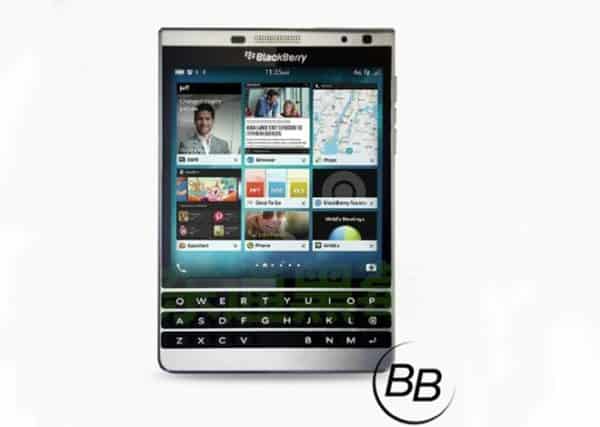
 The device leak has become part of internet culture. An iPhone haphazardly left in a booth at a restaurant in Cupertino? Scoop. A blurry image of the new Samsung Galaxy that originates from a website in Taiwan? Viral.
The device leak has become part of internet culture. An iPhone haphazardly left in a booth at a restaurant in Cupertino? Scoop. A blurry image of the new Samsung Galaxy that originates from a website in Taiwan? Viral.
We have come to expect these sneak peeks of devices. We might even suspect that companies encourage them. No one is telling.
For Canadians, our device leaks get less press. That’s because they’re always centered around BlackBerry, whose share of the global smartphone market is approximately equal to Alanis Morissette’s current share of the pop charts.
Today, multiple organizations are reporting on a rumoured new device called the BlackBerry Oslo. Oslo is reportedly “the successor to the BlackBerry Ltd.’s moderately successful Blackberry Passport handset”, writes The Financial Post’s Patrick O’Rourke.
The BlackBerry Oslo, reports Ubergizmo, will boast a 3.450mAh battery, but other than that it will be exactly the same as the Passport. The site says the device is intended for the Chinese market.
None of this should matter to investors. And BlackBerry shareholders who are tempted to lash out at “IPhoneRules33” for gleefully mocking the market share of the BlackBerry Classic on some chat board or Twitter should simply hold their tongues.
BlackBerry isn’t really a hardware company. It used to be, but it isn’t anymore. When people mock BlackBerry, as they often have since the release of the iPhone, they ridicule the stereotyped image of the unhip dad with a BlackBerry Bold on a belt clip. Barack Obama did it recently on Jimmy Kimmel.
Investors waiting on the next device from BlackBerry to send its shares soaring will likely be waiting a long time. The company’s opportunity lies elsewhere.
Cormark analyst Richard Tse, who has a “Speculative Buy” rating says hardware numbers barely factor into his bullish thesis. Instead, he is focused on the company’s world-class security, its software development and enterprise mobility management.
In fact, in late 2013, Tse posited that simply removing hardware from the equation would move BlackBerry’s margins to 77%.
CEO John Chen seems acutely aware of BlackBerry’s strengths, but before he took the helm, former Descartes Systems Group CEO Art Mesher said there was a real danger that corporate decisions were driven by “gadget geeks” who were in denial of systems evolution theory, which he felt was the reason for the demise of companies such as Palm and DEC.
Tse, meanwhile, says a lot of things make BlackBerry a takeover target and none of them are called Passport or Classic or Oslo.
“We still believe it’s a target,” said Tse. “Despite the on-and-off acquisition talk for BlackBerry, we continue to believe this remains a credible thesis. Why? It goes beyond just the MDM/EMM (Mobile device management/Enterprise mobility management) opportunity. We continue to see meaningful potential with BlackBerry’s IoT opportunity via QNX which is present in over 50 MM vehicles with arguably the greatest coverage in that market with a potential to upsell new services on that mobile operating system”.
Comment
Leave a Reply
You must be logged in to post a comment.






 Share
Share Tweet
Tweet Share
Share




” with arguably the greatest coverage in that market” ?????? How do you argue 50+%
Blackberry is still designing and producing more phones then apple. How are they now not a hardware company. Their hardware division is profitable. They sell more window PC’S then Apple does that make Apple computers bad??
China Mobile just announced a few weeks ago new deals to promote BES12 and BB’s dual sim technology and you dont think a phone targeted for the chinese is noteworthy…..gimme a break, the Chinese inroads of the past month are huge.
In previous quarters they sold millions of devices with zero carrier support and zero advertising. That’s pretty good. Device numbers will be up substantially this quarter, and fashion changes.
As an investor, I’m glad that they’re not dependent on market share, but I do believe it’s just a matter of time before these BlackBerry 10 devices gain some traction in the market. They’re just too good to fail.